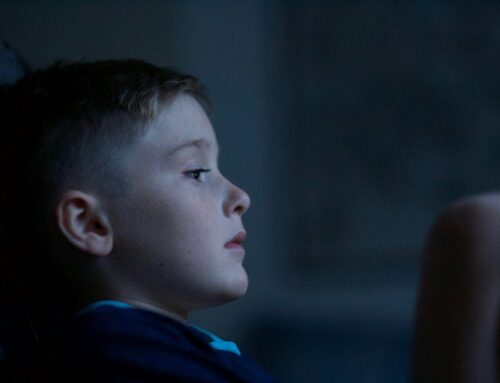When a child experiences an unplanned separation from their primary caregiver, the traumatic effects can extend far beyond childhood and even into adulthood.(3) A strong, positive connection with a parent is essential for proper brain development, and for a child to develop the key characteristics that are necessary for healthy development, including resiliency and the ability to overcome adversity.(3) This is especially true for children under the age of five, as their brains are in their most formative stage of development.(2) When children are separated from their parents, the usual development of the brain changes.
The Stress of Parental Separation
Children, especially young children, rely on their parents for survival. As such, when a child is separated from their parent, a stress hormone called cortisol is released in the body. High amounts of cortisol — the amounts associated with parental separation — changes certain structures and connections within the brain.(3) These brain changes impact a child’s ability to regulate their emotions, as well as their ability to respond appropriately to fear. (2,3)
If a child is not quickly reunited with their parent, then these changes may become permanent. The physical brain changes that result from this trauma reaction have been associated with a variety of future, lifelong problems, including anxiety, behavioral issues, depression, mood disorders, mental health conditions, and substance use. (3)
There are many reasons why a parent and child might be separated. For situations that do not involve death, then the trauma also affects the parent in a negative way. Parents separated from their children experience overwhelming and complicated emotional pain.(3) If they are ultimately able to be reunited with their children, the scars from that trauma could also affect their ability to parent. Studies have shown that parents who are experiencing difficult emotions and uncertainties can further worsen the impact of the trauma on the child.(3)
Fostering Resiliency and Overcoming Trauma
Children who have experienced the trauma of separation from their parents may exhibit a variety of behaviors depending on their age at the time of the separation.(1) Younger children might become clingy and fearful. They might have a reduced appetite or have trouble sleeping. They may also backtrack on milestones that they had previously achieved, such as toilet training.(1) Older children and teeangers, meanwhile, could become withdrawn and aggressive. They may worry intensely about their safety, experience anxiety or depression, and engage in risk-taking behaviors.(1)
If it is possible and safe, children should be reunited with their parents as soon as possible after separation.(3) This is why, during divorce cases, joint custody is now much more common than sole custody cases. Many adoptions, too, are now open adoptions. Trauma research is also why there has been such controversy surrounding the situation at the U.S border, where migrant families have been separated from their children.
When a child cannot be reunited with their parent, or even after a child has been reunited, It is important for children who have experienced such trauma to receive trauma-informed care and services.(1) The impact of trauma on a child is an area of psychology that may be of considerable interest to foster and adoptive parents. If a child has lost a parent to death, it is important to consider grief counseling and bereavement services, as well.
It’s important to know that just one positive adult in a child’s life, such as a teacher, can help to mitigate some of the response to trauma, but children benefit most from regular, supportive caregivers. Children must also receive appropriate support systems, such as community programs, that allow them to feel secure and to recognize their own self-worth.(1) In therapy programs, children can learn coping skills and new ways of thinking. These actions can help foster resilience in spite of the trauma that they have experienced.
Request an Appointment at NeuroBehavioral Associates
At NeuroBehavioral Associates, we offer forensic services, including post-traumatic stress disorder cases. We also provide comprehensive neuropsychological assessments for children, teenagers, and adults with known or suspected learning, cognitive, or neurodevelopmental differences.
NeuroBehavioral Associates remains open during the COVID-19 pandemic. We are still offering in-office assessments, consultations, and therapy services. We are also using telehealth tools to compliment our in-office visits. We are maintaining a low-contact testing strategy that includes social distancing.
Schedule an appointment or request more information today by calling 410-772-7155. You may also contact us online.
References:
- Child Trends. (2020, April 30). How to Implement Trauma-informed Care to Build Resilience to Childhood Trauma. https://www.childtrends.org/publications/how-to-implement-trauma-informed-care-to-build-resilience-to-childhood-trauma
- Lavine, R. (2018, February 7). Children’s Separation from Parents Can Leave Lasting Effects. Psychology Today. https://www.psychologytoday.com/us/blog/neuro-behavioral-betterment/201807/childrens-separation-parents-can-leave-lasting-effects
- Stanford University. (2018, June 27). The psychological impact of early life stress and parental separation. Stanford News. https://news.stanford.edu/2018/06/26/psychological-impact-early-life-stress-parental-separation/






